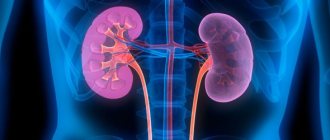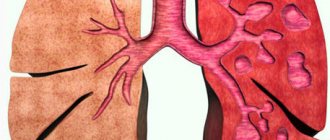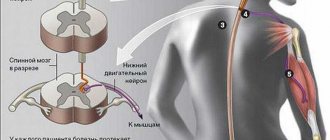The most common causes of sour taste in the mouth
Hyperacid gastritis
This disease is characterized by increased secretion of hydrochloric acid. Other symptoms are also observed:
- pain in the stomach area (paroxysmal, acute, on an empty stomach and after a meal);
- nausea;
- heartburn;
- belching;
- vomit;
- excessive salivation;
- bowel disorder (constipation, diarrhea);
- weakness.
A sour taste in the mouth in the morning
This phenomenon is characteristic of gastroesophageal reflux, a condition when gastric juice periodically flows into the esophagus. Since the body is in a horizontal position at night, the sour juice penetrates the digestive tract more easily.
Other symptoms include:
- belching;
- heartburn;
- pain;
- nausea.
The symptoms are similar to acute gastritis, but more often this deviation is accompanied by a hyperacid form, accompanied by increased gastric secretion.
Peptic ulcer
The reason for the sour taste in the mouth may be due to the development of a stomach ulcer. In this case, the symptoms of the pathology, as a rule, are clearly expressed only during exacerbation, usually in autumn and spring. The disease often recurs and lasts a long time.
- An ulcer is indicated by severe pain that occurs on an empty stomach and after eating.
- There is also a feeling of fullness and heaviness.
- Appetite remains, but eating may be painful.
- With a peptic ulcer, the symptoms are more pronounced than with gastritis.
Insufficiency of the cardiac sphincter - chalasia
This disease is a malfunction of the cardia - the place where the esophagus passes into the stomach. When the muscles in this area cease to perform their functions, acidic gastric juices are thrown into the esophagus. This is why a person often experiences discomfort, which is especially strong in the morning. The patient is also concerned about symptoms characteristic of gastroesophageal reflux.
Diaphragmatic hernia
The diaphragm separates the chest and abdominal cavities, but it has an opening through which the esophagus passes. With a hernia, it expands significantly, causing part of the esophagus and stomach to descend into the chest cavity. This pathology resembles cardiac sphincter insufficiency. Other symptoms are also present:
- abdominal and stomach pain;
- heartburn;
- night attacks of shortness of breath.
Antacids act against acid
Non-absorbable antacids neutralize the acid that has entered the esophageal tube: Almagel, Maalox, Phosphalugel, Gastal. Almagel Neo contains simethicone to eliminate bloating. Almagel A suspension is available with an anesthetic component. Gaviscon, in addition to the antacid, contains alginic acid and alginates. They create a gel-like film in the upper part of the stomach that prevents reflux.
Antacids quickly get rid of the sour taste and save you from severe heartburn. Unfortunately, long-term use may cause disturbances in the metabolism of calcium and magnesium. Any antacids only eliminate symptoms and have virtually no effect on the underlying causes of the disease.
Important! Unlike antacids, H2 receptor blockers, as well as proton pump inhibitors, do not simply neutralize acid, but reduce its production in the stomach.
Before getting rid of sour belching with the help of medications and herbs, it is recommended to consult a doctor. There are methods that allow you to determine the level of acidity, for example, pH-metry. For normal, elevated and decreased values, you need to take different medications.
Features of sour taste in stomach diseases
It is worth noting that pathologies such as gastritis, ulcers, gastroesophageal reflux can be accompanied by sweet-sour and sour-salty taste. When it is sour and bitter, diseases of the gallbladder and liver are diagnosed.
The most effective and common research method is gastroesophagoscopy. The process uses endoscopic equipment, which allows the doctor to examine the condition of the gastric mucosa and identify pathological formations. During the examination, ultrasound of the abdominal organs and radiography of the entire gastrointestinal tract may be used.
Basically, treatment for an unpleasant sour taste in the mouth involves taking antacid medications that reduce acidity, as well as a special diet.
Drug therapy
Drug treatment consists of eliminating the cause that provoked the occurrence of this symptom. The following groups of drugs are most often used:
- Pancreatic enzymes: Creon-10000, Pancreatin, Mezim. These medications are used for chronic pancreatitis. They help compensate for the deficiency of enzymes produced by the pancreas.
- Antibiotics: Tetracycline, Amoxiclav. Used to eliminate the bacterium Helicobacter pylori - the main provocateur of gastritis with increased secretion.
- Bismuth-containing preparations: De-Nol, Vimsut tripotassium dicitrate. Such agents stimulate recovery processes in the gastric mucosa, forming a protective film on it. Preparations with bismuth are harmful to the Helicobacter pylori bacterium and are often used together with antibiotics. At the same time, they reduce the acidity of gastric juice.
- Proton pump blockers: Emanera, Omeprazole, Nolpaza. This line of products eliminates increased secretory function, inhibiting the production of hydrochloric acid. One tablet lasts for almost a day. The drugs are used for gastritis and peptic ulcers.
- Antacids: Maalox, Rennie, Gastal. Such products coat the gastric mucosa, eliminating heartburn and an unpleasant taste in the mouth. These drugs are prescribed for reflux disease and gastritis.
- Choleretic agents: Hofitol, Ursofalk. Used for chronic cholecystitis. Such medications promote the excretion of bile and prevent congestion in the bladder.
Drug therapy - gallery
Mezim compensates for enzyme deficiency Amoxiclav destroys the bacterium Helicobacter pylori in combination with other antibiotics De-Nol forms a protective film on the gastric mucosa Omeprazole blocks the production of hydrochloric acid Gastal envelops the gastric mucosa Hophytol is a choleretic agent of plant origin
Oral diseases
This phenomenon often worries people suffering from:
- periodontitis (inflammation of the soft tissues around the tooth);
- caries;
- gingivitis (inflammation of the gums).
These conditions contribute to the proliferation of pathogenic microorganisms, which produce acidic products during their life processes.
As a result, unpleasant sensations are observed constantly. This kind of disease is accompanied by toothache, swelling of the gums and skin. For diagnosis and treatment, contact a dentist.
Treatment prognosis and complications
With timely diagnosis, the treatment prognosis is good. Especially if you approach solving the problem comprehensively. Complications occur rarely, only in the absence of treatment. Gastritis with increased secretory function can lead to the formation of erosion on the gastric mucosa, and subsequently to peptic ulcer.
Reflux esophagitis can provoke ulceration of the esophagus, which occurs with constant reflux of hydrochloric acid. In this case, dangerous consequences arise in the form of scarring of the mucous membrane, as well as stenosis (narrowing) of the organ lumen. Long-term pancreatitis can lead to dangerous changes in the structure of the pancreas. In this case, self-digestion of organ tissue occurs, which can be fatal. Prolonged stagnation of bile provokes the formation of stones, which can lead to obstruction of the ducts.
What does the sour-bitter and bitter taste in the mouth indicate?
Bitterness can be caused by the consumption of fatty and fried foods, alcoholic beverages, antibiotics and antiallergic drugs, and it often accompanies smokers.
This phenomenon requires consultation with a therapist or gastroenterologist. Its most common cause is dysfunction of the liver, gallbladder and its ducts. This kind of pathology provokes the periodic movement of bitter bile up the esophagus.
Chronic cholecystitis
Characteristic signs of inflammation of the gallbladder are a feeling of bitter taste and a yellow coated tongue. Typical symptoms also include:
- pain in the right hypochondrium;
- nausea;
- vomit;
- diarrhea;
- constipation;
- discomfort and bloating;
- weakness;
- sometimes the temperature rises.
With exacerbation, the signs of pathology become more pronounced.
Biliary dyskinesia
- The disease is a weakening of the motility and tone of the wall of the gallbladder and the ducts that remove bile.
- The hypokinetic type of the disease is characterized by dull, aching pain.
- Hyperkinetic – sharp, stabbing.
Cholelithiasis
The disease is accompanied by painful attacks, which are called biliary colic. Observed:
- nausea;
- vomit;
- yellowing of the skin;
- heat.
If pain occurs, you must call an ambulance.
A bitter or sour-bitter taste occurs due to pathologies of the stomach and intestines (dysbacteriosis, enteritis, colitis, duodenitis, etc.). It is also worth considering that diseases of the gums and teeth can also be accompanied by this phenomenon.
Treatment is prescribed in accordance with the specifics of the disease. For example, for pathologies of the gallbladder, antispasmodics, painkillers, antibiotics, and choleretic drugs are prescribed. As a supplement, folk remedies are used to overcome the unpleasant taste: a weak solution of soda, potato broth, calamus root.
Classification
A sour taste forms in the mouth for various reasons, and the manifestations of this symptom are equally varied. Clinicians identified four phenomena:
- sour with sweet;
- bitter combined with sour;
- sour with metallic;
- sour with a salty taste.
A sweet and sour taste in the mouth means that a person has ailments in the nervous system. It also appears from a large amount of sugar in the blood, which manifests itself after eating sweets. Sometimes it indicates various gastrointestinal pathologies. If a smoker abruptly gives up nicotine, he will also be bothered by the sweet and sour taste.
The symptom also develops from an increase in bacterial microflora in the oral cavity. The sign indicates gingivitis, periodontitis or caries. Another reason for the formation of a foul double taste is chemical intoxication. The malodorous phenomenon also appears as a side effect of regularly taking certain medications.
Gingivitis is a possible cause of sour taste in the mouth.
A bitter taste with sourness can appear either temporarily or regularly. A bitter-sour taste in the mouth often appears in the morning. This manifestation informs the person that he or she ate an excessive amount of unhealthy food for dinner last night. At such moments, the load on the liver and intestinal tract increases and their functionality deteriorates.
Sometimes the symptom is diagnosed after frequent abuse of alcohol in large doses. With this phenomenon, the patient’s liver, gallbladder and stomach become more difficult to function. The etiological factor in the appearance of the symptom is also the frequent use of pills, allergic reactions or taking antibiotics.
Bitterness in the mouth also develops in smokers who like to abuse nicotine during the day and before bed. Also, a repulsive symptom informs about damage to the digestive system and biliary tract. At the time of manifestation of such a symptom, the patient develops cholecystopancreatitis, ulcers, gastritis, cholecystitis.
A sour-metallic taste indicates the presence of blood in the mouth. Sometimes this symptom is felt by people with metal-based crowns, dentures or piercings. A common cause of symptoms is oral diseases, for example, stomatitis, gingivitis, periodontal disease.
In the initial stages of diabetes mellitus, a person also experiences a metallic and acidic taste. A similar phenomenon in women is often diagnosed in the event of hormonal changes, for example, during pregnancy, menopause or puberty. Common provoking factors for the manifestation of symptoms are persistent anemia and a bleeding ulcer.
A sour-salty taste in the mouth indicates the beginning of an inflammatory process in the salivary glands. The symptom often appears in the presence of ENT pathologies. A similar phenomenon is diagnosed in people with Sjogren's disease.
With an unbalanced diet, patients often exhibit a similar symptom. Often the phenomenon worsens after strong tea, coffee, soda, and energy drinks. The stench occurs in those people who do not drink enough liquid, which causes dehydration.
Sour and salty tastes simultaneously indicate combinations of diseases, and not a single manifestation of the problem. Therefore, patients with this manifestation require urgent diagnosis and treatment.
Etiology of the disease
A person is naturally curious, so when acidity increases in his mouth, he will want to know what triggered this phenomenon and how to deal with it.
The disease can occur due to:
- increased concentration of hydrochloric acid;
- pathological processes in the gastrointestinal tract;
- diseases affecting the oral cavity;
- use of medications.
A woman often experiences acidity in her mouth when carrying a child. Pregnancy increases the uterus and pressure on the gastrointestinal tract. As a result, the pressure in the abdominal cavity increases, and the stomach releases acid into the oral cavity.
If a patient suffers from a sour taste and dryness at the same time, this may indicate an impaired water-salt balance caused by insufficient water intake.
The appearance of a sourish-bitter taste can be provoked by the patient's abuse of smoked, fatty or fried foods. Because of such food, his liver and biliary system may begin to malfunction.
Having noticed the systematic manifestation of the disease, a person needs to seek qualified help as quickly as possible in order to establish the cause of the disease.
Preventive actions
You can minimize the risk of acidity in your mouth by following simple rules of prevention. Here are the main recommendations of experts in this regard:
- try to eat healthy foods, limit the consumption of fatty, salty and smoked foods,
- drink more plain water, give up coffee,
- diversify your diet with fresh vegetables and fruits, as well as freshly squeezed juices,
- take a responsible approach to hygiene, brush your teeth in the morning and evening, rinse your mouth with water after eating, and also do not forget the importance of using dental floss,
- systematically visit the dentist's office for a routine preventive examination.
Compliance with these basic rules will help ensure excellent well-being and healthy functioning of all internal systems of the body. If the acidity in the mouth nevertheless increases, and the discomfort persists for more than one day, there is a reason to visit a doctor and undergo an appropriate examination.
- Denisov A.B. Salivary glands. Saliva, 2000.
How is drug treatment carried out?
So, we have figured out what such a symptom may indicate, and now it’s time to figure out what to do in such a situation and how to remove the unpleasant sour taste. First, you need to find out the true cause of the problem, and for this you will need to undergo diagnostics, during which the doctor will first examine the patient’s oral cavity, after which he may send him for an ultrasound of the internal organs, FGDS and an x-ray examination. The method of dealing with the symptom and the specific treatment plan are developed based on the characteristics of the clinical picture. Treatment can be carried out by a therapist, dentist or gastroenterologist - it all depends, again, on the root cause of the acidity disorder in the oral cavity.
To relieve the symptom, specialists usually prescribe antisecretory drugs, for example, Omez or Gaviscon. Medicines are also prescribed to alleviate the patient’s condition and normalize the acid-base balance: “Almagel”, “Maalox”. When answering the question of how to treat the problem, it is worth noting that experts often recommend taking prokinetics, which prevent the release of stomach contents into the esophagus. It is important to understand here that taking any medications without prior approval from a specialist is strictly prohibited. There is a high probability that independent attempts to recover will lead to even greater complications.
Prevention
For the sake of maintaining general health and immediately eliminating the sour taste, you should adhere to the following recommendations from doctors:
- Try to follow the principles of proper nutrition, avoid junk foods and heavy foods.
- Drink the recommended amount of clean water and replace coffee with green tea.
- It is enough to drink a glass of freshly squeezed fruit or vegetable juice a day.
- You need to get rid of bad habits, especially smoking and drinking alcohol.
- Maintain daily oral hygiene - brush your teeth twice a day and rinse them after every meal.
- After dinner, it is advisable to take a short walk in the fresh air and only then go to bed.
Sjögren's syndrome
This is a condition in which the glands responsible for producing tears and saliva become smaller or stop completely, which can cause dry eyes and mouth. This syndrome occurs in people between 40 and 50 years of age. Women are more prone to this autoimmune disease. It is believed that dry mouth sometimes causes a feeling of acidity. There are other symptoms that may help identify this syndrome:
- difficulty swallowing, especially dry foods
- sour or thick saliva
- the appearance of ulcers in the mouth
- inflammation in the gums
- swollen tonsils
- fever and fatigue











